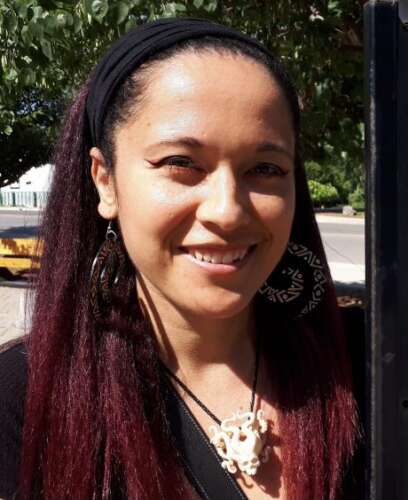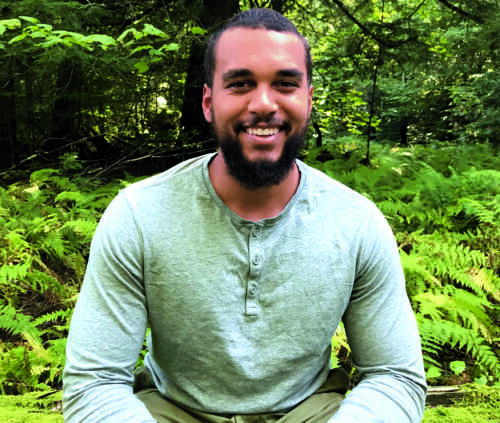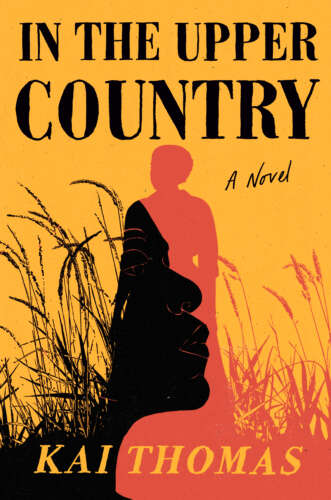When Dr. Deirdre McCorkindale walked into the room to teach Black Canadian History, a second-year course that is part of U of G’s new Black Canadian Studies program, staring back at her was a fully enrolled class composed of students from all backgrounds.

“There is a demand for this,” McCorkindale said of the interdisciplinary program launched by the College of Arts in fall 2022.
“Students want to take this, they want to know about this history, they want to know about the Black experience in Canada. It’s important to them.”
Equally overwhelmed and delighted to see such interest, McCorkindale was eager to open the door to this part of Canadian history to anyone who wished to step through it, operating on a firm belief that Black history is for everyone.
“Guelph is very much starting to be part of the cultural zeitgeist that is happening right now in terms of Black Canadian Studies,” she said, referencing other universities with similar offerings.
That a program like this exists and that she is now part of its development is not something McCorkindale, who grew up in Chatham – terminus of the Underground Railroad, with a legacy of abolitionism – ever dreamed possible.
Histories of marginalized people are often fragmented and “history itself as a discipline is still a very white-dominated subject,” McCorkindale said.
Black History in Canada, Emancipation Day and modern connections
In Black Canadian History, McCorkindale combines traditional teaching methods (lecture, discussion) with field experience, connecting students with archivists and Black historical societies piecing those fragments together like an Afro-Canadian historian would. One project under way is the creation of an e-book on Emancipation Day in Canada that focuses on the celebration of Black culture and will serve as an ongoing resource for future students.
Black Canadian Studies is an interdisciplinary program that McCorkindale considers valuable to any learner. Organizations in both public and private sectors contend with equity and diversity issues, she said, and a graduate in any field who has studied Black history and its connection to current sociological problems will view the world through a different, and much-needed, lens.
“It’s hard for people to understand that the world is different for different people,” said McCorkindale, adding many countries hesitate to look internally to have necessary, painful discussions about some of the issues facing modern society.
“Canada has the same problem,” she said, despite the fact that Black people have been in Canada since before Confederation, the first enslaved Black person recorded in 1629. “If you’ve studied these things, you’re an asset to the private sector.”
U of G alum’s debut novel connects Black and Indigenous history in Canada

Kai Thomas knows firsthand how important the education of Black history is. Growing up in the Ottawa area and attending McGill University in Montreal before completing a master’s degree in creative writing at U of G, Thomas remembers little exposure to Black history in the Canadian education system.
What little he was taught, “was always very relegated to the past, with no sense of how this is the history that brought us to this current moment,” he said.
Thomas’s debut novel, In The Upper Country, was inspired by a desire to represent stories untold. In an author’s note at the close of the book, he writes: “We must share the stories that haven’t been shared, in order to bring healing to our world.”
Penguin Random House released In The Upper Country last month, and the work has garnered reviews at home and abroad, featured in the Toronto Star, CBC, The New York Times and NPR, among others.
The way the story connects Black communities with Indigenous communities echoes a history rarely explored, infused with Thomas’s own lived experience. He describes in the author’s note, a pivotal moment meeting a First Nations man following an encounter with police in a small B.C. town that left the author with a sense of safety, welcoming and belonging on that land.
“It got me thinking about why I hadn’t seen those encounters displayed in what I was reading or watching.”
Fiction fills in the blanks of Black history

Canadian history has always included the story of the Underground Railroad. However, Thomas remembers it more as a tale of how Canadians helped enslaved Black people, without any understanding of the nuanced realities of those Black experiences on this soil. Examining this moment in history from Black and Indigenous perspectives, he found it interesting, relevant and motivating to write about in the context of the novel.
The story follows the protagonist, Lensinda, a Black woman in Dunmore, a fictional town settled by people fleeing enslavement in the American South that Thomas planted on the map just a stone’s throw from Chatham.
While digging through records, Thomas discovered the name Lensinda, and his curiosity about what her life might have been like propelled the writing. “I wanted to fill in the blanks of history in some way and draw from the legacy of Black women storytellers,” he said, while “representing it all in a way that resonates and speaks to people in the present moment.”
In The Upper Country began as an idea during Thomas’s time at U of G. “It was a very formative experience,” he said. “It nurtured my confidence as a writer. The program really encouraged a focus on craft and a dedication to the creative work.”
As a reader, Thomas knows the impact a good book can have on a person, enlightening them to a time or a place or even a theme previously unfamiliar. “It’s hard to measure what that does in a person’s life, but having experienced that through novels, it intuitively felt powerful and important enough dedicate this time in my life to that,” he said.
“In time, I’m hopeful to see what the book does, how it lands with people.”
Contact:
Dr. Deirdre McCorkindale
dmccorki@uoguelph.ca
Kai Thomas
kaithomasauthor.com
